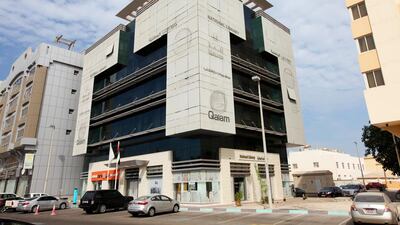ABU DHABI // After five years serving the community’s book lovers, the National Library in downtown Abu Dhabi’s Al Nahyan Camp area will shut its doors for good on Wednesday.
The closure has saddened the 100 or so regular visitors, who now face a 13-kilometre journey to the nearest library, in Khalifa Park.
“I have been coming to this library for the past nine months almost every day, and I am going to miss it lot,” said Shareef Obaidullah, who lives in Madinat Zayed.
“This place was very convenient to reach and very close to my house. Now we have to go to Khalifa Park, which is very far from the city.
“I used to spend almost 12 hours every day in the library as I am preparing for a medical examination,” said the Pakistani, who studied at the library from 9am until almost closing time.
The community library was opened in April 2011 in a rented apartment. Despite its small size, it proved very popular with those living in the area.
Juma Al Dhaheri, who is responsible for library services at the National Library, said the building would soon close its doors for good.
“Yes, it will be shut down from November 30,” he said, adding that libraries are still available at Khalifa Park, Mazyad Mall and Al Bahiya.
But avid readers can look forward to a new library opening in the heart of Abu Dhabi, Mr Al Dhaheri said.
“We are going to open a library in a year that will be equipped with modern facilities. Currently it is being operated in a rented apartment, which is not a proper library.
“So we are going to open a full-fledged library in a more organised and spacious place.
“It’s going to be at Qasr Al Hosn, on Sheikh Zayed the First Street, which is in the heart of the city,” Mr Al Dhaheri said.
In the meantime, regular visitors such as Fahad Yasir will have to find somewhere else to study and read in peace
“For the time being we don’t have an idea where we will be going after its closure,” said the Pakistani, who would visit the -library on a near-daily basis from his home in Khalidiyah.
“Khalifa Park is very far, I will think about finding some other place that is close to home.”
anwar@thenational.ae

